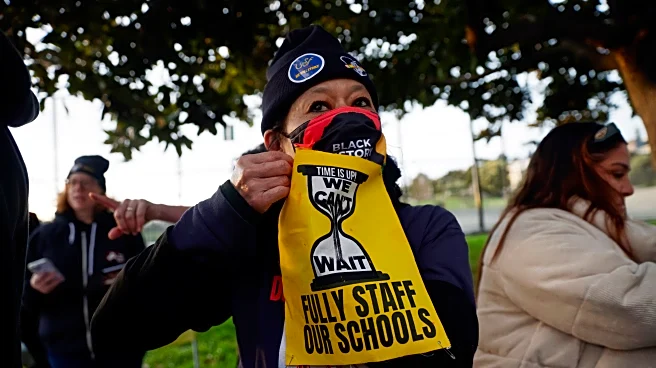What's Happening?
Shohei Ohtani, the Los Angeles Dodgers' two-way superstar, has set a unique record in Major League Baseball by hitting exactly 55 home runs in the 2025 regular season. This achievement marks the first time in MLB history that a player has hit precisely 55 home runs in a single season. While there have been multiple seasons with 54 and 56 home runs, Ohtani's accomplishment stands out as a statistical anomaly. His performance is considered one of the better power-hitting seasons in recent memory, although not historically significant in terms of breaking previous home run records. Ohtani's achievement adds to his reputation as an unmatched player in MLB history.
Why It's Important?
Ohtani's record highlights his exceptional talent and ability to achieve feats that set him apart in the world of baseball. This unique accomplishment underscores the unpredictable nature of sports statistics and the potential for players to create new benchmarks. For the Dodgers, having a player like Ohtani contributes to their competitive edge and enhances their standing in the league. The record also adds to the narrative of Ohtani's career, further solidifying his status as a remarkable athlete capable of achieving extraordinary milestones. This event may inspire other players to aim for unique records, adding excitement and diversity to the sport.
What's Next?
As the MLB season progresses, Ohtani's performance will continue to be closely watched by fans and analysts. The Dodgers may leverage his unique skills in their strategy to secure victories and potentially aim for championship titles. Ohtani's achievement could influence other players to pursue distinctive records, fostering a culture of innovation and ambition within the league. Additionally, discussions around Ohtani's future contracts and endorsements may arise, given his growing influence and marketability as a top-tier athlete.
Beyond the Headlines
Ohtani's record may prompt discussions about the nature of statistical achievements in sports and their impact on player legacies. It raises questions about how unique records are valued compared to traditional milestones, such as breaking long-standing home run records. This development could lead to a reevaluation of how achievements are celebrated and remembered in the sports community, potentially influencing future generations of athletes.











